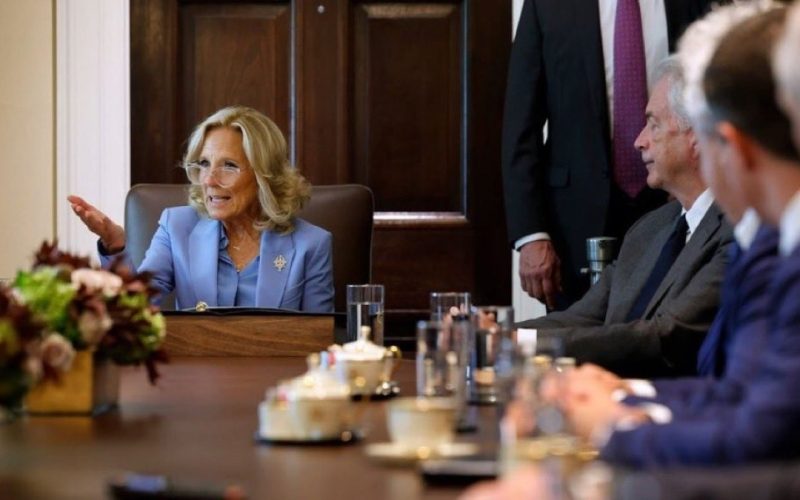The political landscape buzzed with debate following Elon Musk’s appointment to President Donald Trump’s cabinet as head of the newly formed Government Efficiency Commission. The decision, aimed at leveraging Musk’s business expertise to streamline government operations, has drawn both praise and criticism.
Adding fuel to the fire, Republicans have pointed to Jill Biden’s earlier involvement in cabinet meetings during her husband’s presidency, raising the question: “Why Jill Biden?” This comparison has turned a policy decision into a broader discussion about the roles of non-traditional figures in governance. This article delves into the facts, reactions, and implications of this controversy, drawing from reliable sources to provide a comprehensive overview.
Elon Musk, the billionaire entrepreneur behind Tesla and SpaceX, was tapped by President Trump shortly after his inauguration to lead the Government Efficiency Commission. Announced in January 2025, this new body is tasked with identifying wasteful spending and bureaucratic inefficiencies within the federal government. Trump heralded the move as a bold step to address “decades of government bloat,” citing Musk’s proven track record in optimizing large-scale operations.
Musk’s role is not a traditional cabinet position but a high-profile advisory one, granting him significant influence over government reform efforts. Supporters, particularly within the Republican Party, argue that his outsider perspective and innovative mindset are precisely what the government needs. “Elon Musk has built empires by cutting waste and driving efficiency,” said a statement from the Republican National Committee. “He’s the perfect fit to shake up Washington.”
However, critics—mainly Democrats—have questioned Musk’s qualifications for such a role. With no prior government experience and a history of controversial public statements, some argue that his appointment blurs the line between business and public administration. “Running a company isn’t the same as managing a government,” remarked a Democratic National Committee spokesperson. “This is a risky experiment.”
Republicans have seized on Musk’s appointment to draw a comparison with Jill Biden’s involvement in cabinet meetings during President Joe Biden’s tenure, which ended in January 2025. As First Lady, Jill Biden participated in discussions related to education and community initiatives, leveraging her background as an educator and advocate for military families. Her role was advisory, not formal, and focused on areas where she had expertise.
This participation, however, drew criticism from some Republicans at the time, who viewed it as an overreach. “The First Lady isn’t an elected official,” argued conservative commentator Sean Hannity in a 2023 broadcast. “She shouldn’t have a seat at the cabinet table.”
Now, with Musk’s appointment in the spotlight, Republicans are reviving this grievance. “If Jill Biden could sit in on cabinet meetings, why can’t Elon Musk lead a commission?”, echoing a sentiment trending under hashtags like “Why Jill Biden?” and “Musk in Cabinet.”
Democrats counter that the situations are apples and oranges. Jill Biden’s involvement was limited to offering insights on specific issues, they argue, while Musk’s role involves direct authority over a new government entity. “Dr. Biden brought expertise to the table, “Musk’s appointment is about power, not perspective.”





